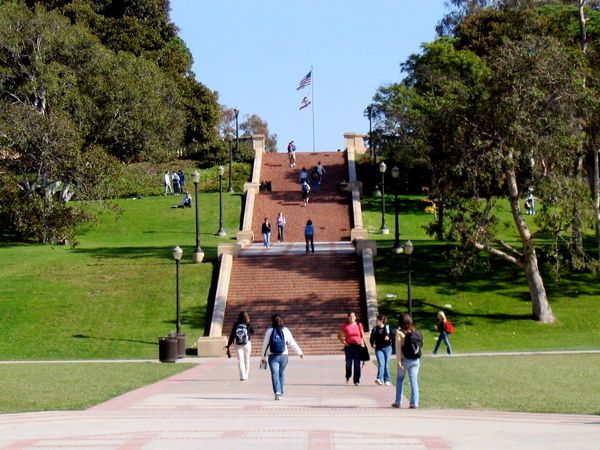Education is a privilege, though some may not view it as such. In America, for those of us who are privileged enough to attend school, we often take it for granted. Having access to knowledge, textbooks, teachers, etc. may not seem like anything extraordinary, but compared to other countries, it is a gift. Due to the fact that access to education in America is, for the most part, so unappreciated, we look at the world with an ethnocentric and privileged view, forgetting that not everyone is so fortunate.
My statistics professor recently described having access to education as a "blessing." He had begun to notice the number of students that chose to skip his class each week and told us that he did not understand why. Candidly, he explained that he is from Ghana and in his country, the resources that are available to us here, are not as easily accessible there. Education is a gift and in his experience, he said that he cannot begin to comprehend why it is so easy for some students to throw that gift away. It was a moment that was particularly eye-opening for me and many other students and was simultaneously a culture shock moment for my professor.
Interested in the education rates in Ghana, I chose to do some research in order to put my professor's words in context. What I have compiled, sheds some light on how our education compares on a global scale. According to NationMaster, in terms of the average years of schooling of adults, Ghana is ranked 76th compared to America's first place ranking. The average years of schooling in America are typically 12 years while in Ghana it is only 3.9. Additionally, the literacy rate for Ghana's total population is 74.8% compared to a 99% rate in the United States. The most unsettling fact that I came across was that, in comparison, Ghana spends 1% more on education. The United States is ranked behind Ghana in 26th place in this category. Though 28.5% of their population lives below the poverty line and the average number of years of schooling is equivalent to a student's high school career, Ghana spends more on education than America.
It appears unfair to compare the two countries, as they are vastly different but on a surface level, the drastic difference between them reveals a new way to look at education. Not only should it alert us to the fact that Ghana could use our help but also to the fact that our access to education is something that should be treasured. Admittedly, the U.S. education system is flawed and imperfect, it stands to be reformed (Textbooks essentially rewriting and whitewashing U.S. history is no secret, for example). Though it has its issues, it is still a privilege for those who can access it. Education should be something that is guaranteed to all, but until that becomes a reality, we should feel fortunate enough to afford it and access all it has to offer.
My professor was able to share his insightful perspective, having experienced education systems in both Ghana and the United States. I value my education greatly but without this candid moment, I would have continued looking at my education with tunnel vision. It is vital that we look outside of what we are familiar with in order to gain perspective on our own situations. Simply put, education is a privilege that we need to stop taking for granted; and one that we need to extend to those less fortunate than ourselves.
Here is a link to verified organizations that aid Ghana in various areas.



















